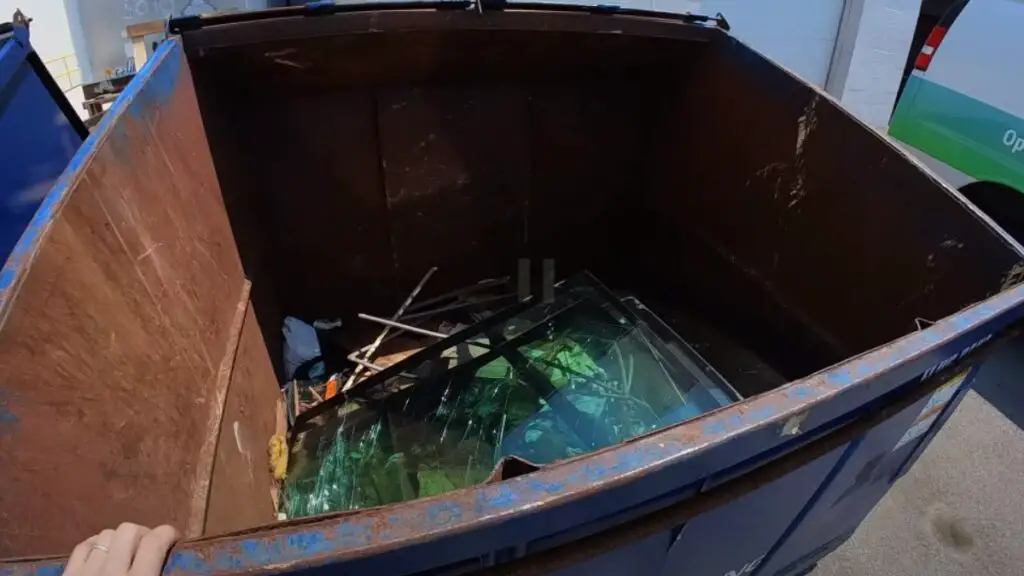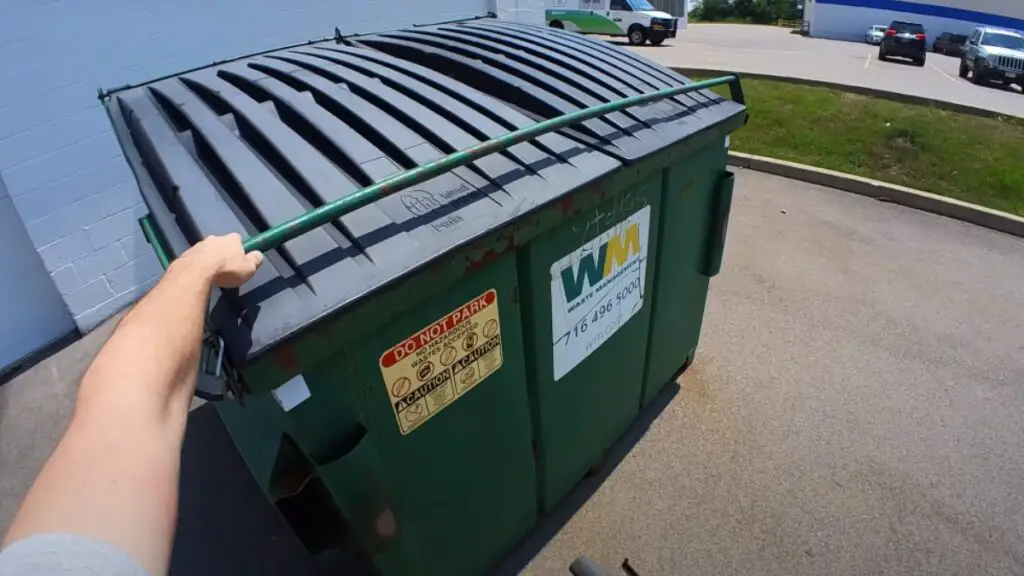Dumpster diving at Kroger may raise eyebrows, but for many, it’s a calculated approach to addressing the pressing issue of food waste.
While the sight of individuals is drawing attention to the shocking reality that supermarkets, including giants like Kroger, discard massive amounts of edible food daily.
In this article, we will dive into this eco-conscious activity that not only questions consumerism but also highlights a potential avenue for sustainable living.
Dumpster Diving At Kroger

Kroger stands tall as one of America’s largest supermarket chains, renowned for providing an extensive variety of products ranging from fresh groceries to pharmacy services.
With a rich history dating back to its founding in 1883 by Barney Kroger in Cincinnati, Ohio, the company has grown exponentially, priding itself on quality.
Today, Kroger’s operational footprint spans across numerous states, featuring a mix of supermarket formats.
With a growing focus on sustainability and reducing food waste, “dumpster diving” at grocery stores like Kroger has become a topic of interest.
According to a report by the ReFED, a nonprofit committed to fighting food waste, grocery stores in the United States are responsible for 10% of all food waste, amounting to an estimated 43 billion pounds annually.
This figure suggests a significant opportunity for recovery and redistribution of resources that otherwise go to waste.
As America’s largest supermarket chain by revenue, Kroger acknowledges the issue by implementing its Zero Hunger program, aiming to create zero food waste by 2025.
Is It Illegal to Dumpster Dive at Kroger?
While dumpster diving is not prohibited at a federal level, legality can vary by state, county, and city regulations.
For example, the act of dumpster diving at company waste, like that of Kroger, can fall under certain anti-trespassing or anti-theft laws if the dumpster is located on private property.
It is crucial to consider that while one state may allow dumpster diving, another might strictly proscribe it under local ordinances.
Kroger, being private property, has the authority to set its own rules regarding waste removal.
If there are “No Trespassing” signs or locked dumpsters, these are clear indications that the company does not permit the practice.
Transgressing these explicit directives could lead to legal repercussions, potentially classifying the action as a misdemeanor or even theft.
What Is The Best Time to Dumpster Dive at Kroger?
The best time for dumpster diving at Kroger often depends on when the store does its inventory and restocking, which is typically after store hours.
Many stores discard unsold perishables and products approaching their sell-by date at the end of the day, usually after 8:00 PM and before midnight.
However, consider visiting on days when the store is likely to clear shelves for new inventory, often on Sunday and Monday nights.
This is when you might find higher-quality items as stores prepare for new shipments for the week.
Always remember to be respectful of private property and maintain cleanliness by not leaving a mess behind.
It’s worth noting that as of 2023, 77% of retailers are actively implementing waste reduction strategies, so available items may vary.
What To Look For While Dumpster Diving at Kroger?
When engaging in dumpster diving at Kroger or similar supermarkets, it’s important to be discerning about the items you collect.
Firstly, look for fresh produce that is often discarded due to minor cosmetic imperfections but is still perfectly edible.
Fruits and vegetables account for a significant percentage of food waste; for instance, it’s reported that in the US, over 52% of all fruits are thrown away.
Check for items with a “sell by” date that has just passed; these products are usually safe to consume shortly after the indicated date.
However, be on the lookout for sealed, non-perishable goods that are often tossed due to packaging changes or overstock.
Remember, safety is paramount, so always ensure the products are free of mold and intact in their packaging.
Here is the list of what to look for while diving:
- Fresh Produce
- Packaged Foods with Slight Damage
- Bakery Items
- Non-Perishable Canned Goods
- Floral Arrangements
- Seasonal Items Post-Holiday
- Overstocked Items
- Discontinued Products
- Dairy Products Close to Expiration Date
- Cosmetic and Personal Care Items
Does Kroger Throw Away Old Products?
Like many large grocery chains, Kroger is committed to reducing waste and managing unsold products responsibly.
Kroger follows a meticulous process to ensure food safety and quality for its customers.
For perishable items like produce, dairy, and meat, Kroger employs a rotation system to keep their offerings fresh, often marking down prices as products approach their sell-by dates to encourage sales and reduce waste.
When items can no longer be sold, Kroger doesn’t simply discard them.
The company has a well-structured donation program in partnership with local food banks known as Zero Hunger.
According to their 2019 sustainability report, Kroger aims to achieve zero food waste by 2025 and has already made significant progress by donating 100 million pounds of food, the equivalent of over 80 million meals, through this program.
For non-food items, Kroger participates in recycling and upcycling programs whenever possible.
However, it should be noted that certain unsalable items, due to safety or legal reasons, must be discarded following proper regulatory guidelines.
In recent years, Kroger has also introduced eco-friendly packaging and sustainability goals, indicating a strong commitment to environmental stewardship.
Explore our guides on Dumpster Diving at Joann Fabric, dumpster diving for Electronics, Kohl’s, and BJS Wholesale Club for more treasure-hunting tips before your next adventure.
How Much Can You Make From Dumpster Diving at Kroger?
The earnings from dumpster diving at Kroger or any retail location can vary widely based on several factors, such as location, the type of recovered item, and the condition of the items.
Dumpster divers have been found to recover edible food products, cosmetics, and other goods that may have been discarded due to packaging damage or impending sell-by dates.
For consumable products, divers have reported savings rather than earnings, as these goods offset their grocery expenses.
However, returns from reselling non-perishable items in good condition can range from negligible amounts to around a few hundred dollars per month.
It depends heavily on the frequency of diving, resale channels, and demand for the items found.

Frederick Perez is the founder of Scrape Dude. He loves exploring and finding hidden treasures in unexpected places. Frederick has been dumpster diving and gold panning for years, turning his hobby into our website to share his adventures. He’s known for his friendly advice and exciting stories, inspiring others to discover the joy in these unique hobbies. His expertise makes Scrape Dude a trusted and fun place to learn and explore.


